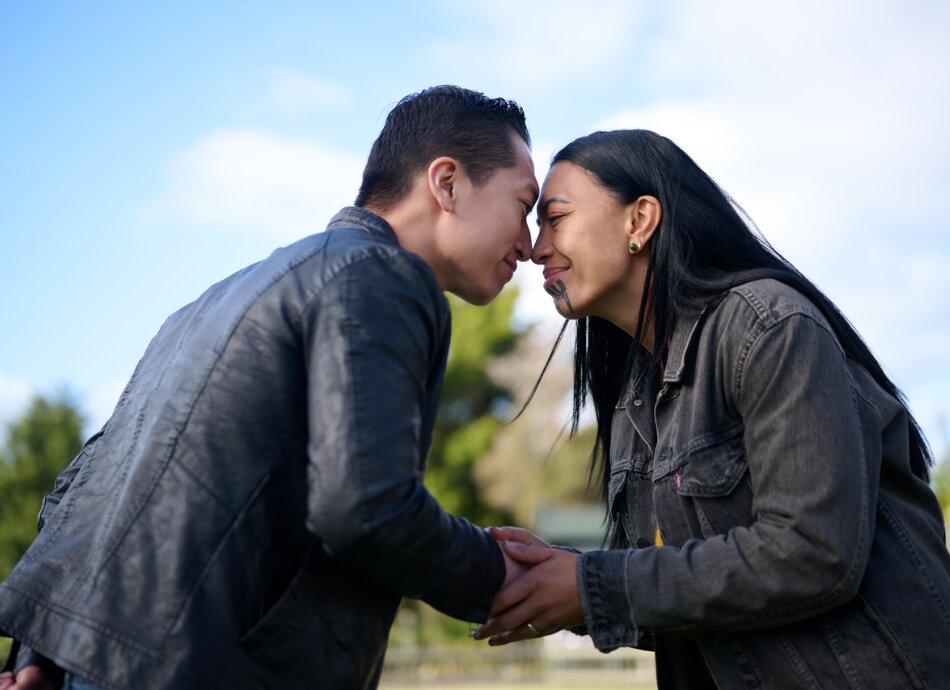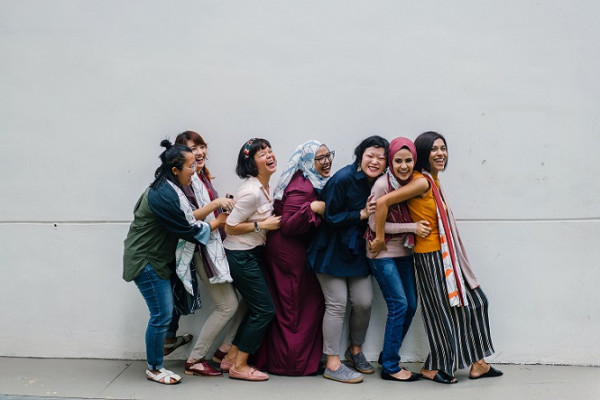Connecting with people
Key points about connecting with people
- Having close, supportive, meaningful relationships with others is not only good for your wellbeing, but also your health.
- Research shows people with strong and broad social relationships are happier, healthier and live longer.
- Whether it’s with family members, friends, workmates, social or community groups, connecting with others is important for your happiness and sense of self-worth.
- While it can sometimes feel hard to connect with people, especially if you’re shy or introverted, there are some things you can do to help.

Social isolation is where you have little or no contact with other people an it can affect your physical and metal wellbeing. Read more about social isolation.
Being alone or socially isolated from others may be your choice. But if it's not, there are things you can do to make connections with others and become more involved with whānau, friends and the wider community.

Image credit: 123rf
Join a local group
See what’s going on in your local community and get involved. Some examples of local groups can include zumba, tai chi, meditation classes, sports clubs or knitting groups. It’s a good idea to ask at your local library to find out what activity groups they're running that you might like to attend. Some libraries even run health and wellbeing sessions for free. This is a good way to meet local people who have similar interests and learn some new things.
Set aside family time
Family life can be very busy, especially if you have children. Make sure you set aside time each week where you do something as a family. This might be a family movie or game night, picnics or walks. Having dinner together each night is also a good way to connect on a daily basis.
Invite some friends around or go out together
Sometimes you have to put yourself out there and do the inviting. Invite a friend or group of friends around to share a meal, watch a sports match or movie, or do an activity together while you share some delicious snacks and conversations:
- Get some old magazines and make your own vision boards.
- Do a jigsaw.
- Learn to draw, paint, knit or crochet.
- Learn some wood working skills.
You might prefer to arrange to meet up somewhere – you could go to a café or restaurant or out for a walk.
Volunteer
Volunteering is a great way to meet people and make new connections. Plus, you’re doing something good for someone and/or your community. This can be a great way to give back to your community, make new friends and uncover new passions.
Contact an old friend
Pick up the phone and contact an old friend or whānau member you haven’t seen for a while. Have a yarn on the phone or catch up in person. It’s very easy nowadays to go without talking and seeing friends and loved ones as messaging is quite a common way of communicating. But nothing beats seeing your loved ones in person!
Smile!
Be friendly and smile. Being approachable is a great way to connect with others and to show you’re willing to engage with them.
Ask questions
Asking open ended questions is always a good way to get a conversation going. It shows you’re interested in the other person, plus it’s a good way to get to know them. Remember to offer up information about yourself, so they can get to know you.
Offer someone a compliment
Offering a compliment can be a great ice breaker. It makes you and the person receiving the compliment feel good and may lead to a really interesting conversation or even making a new friend.
Have device-free time
Put your devices away when you are out with friends or family. It’s hard to connect in a meaningful way if everyone is distracted by their phones.
Be yourself
The most important thing is to be yourself. Being your authentic self and not trying to be someone else will help you connect with like-minded people in a genuine way.
Conservation volunteers New Zealand(external link)
Community support groups(external link) Mental Health Foundation, NZ
Find a club(external link) Clubs New Zealand Inc.
Find local connections(external link) New Zealand Newcomers Network
Social groups(external link) Rainbow Youth, NZ
10 things to do as a family without screens(external link) ScreenCoach, Australia
References
- Connect with people(external link) Action For Happiness, US
- Connect, me whakawhanaunga(external link) Mental Health Foundation, NZ
- Connect with others(external link) Mental Health America
- Five ways to wellbeing(external link) Oxford Health, NHS, UK
Credits: Healthify editorial team. Healthify is brought to you by Health Navigator Charitable Trust.
Reviewed by: Roselyn Singh, Health Coach, Auckland
Last reviewed:





